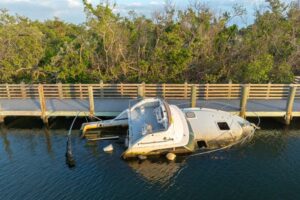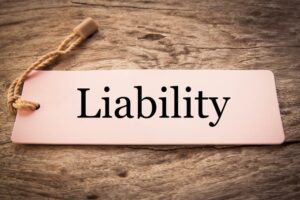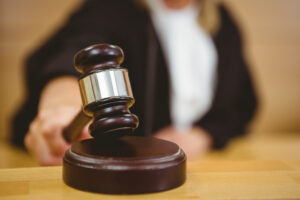If someone caused a boat crash that hurt you or close family members, you’re probably wondering what to do after a boat accident. In Virginia, boating accidents happen more often than many realize, especially on popular waterways like the James River, Chesapeake Bay, and Lake Anna. These crashes can lead to significant harm and legal trouble.
If someone else’s carelessness caused your injuries, you shouldn’t have to carry the burden alone. A boating accident lawyer can help you take the right steps to hold the responsible party accountable. Don’t wait to get help. Reach out to a local attorney for a free consultation today.
Programe una consulta gratuita
What should you do immediately after a boat accident?
 Boat accidents unfold quickly, and the minutes afterward can shape everything that follows. Staying calm and taking the right actions helps protect your safety, your rights, and your chances of recovering compensation later. Here’s what to focus on right away.
Boat accidents unfold quickly, and the minutes afterward can shape everything that follows. Staying calm and taking the right actions helps protect your safety, your rights, and your chances of recovering compensation later. Here’s what to focus on right away.
Ensure everyone’s safety first
Start by checking for injuries. If someone fell overboard, locate them and help them back on board if possible. Make sure passengers are accounted for. Move everyone to a safer location if the boat is taking on water or in danger of sinking. If you have life jackets, use them. Keeping calm and acting quickly can prevent further injury.
Call emergency services (Coast Guard, police, EMS)
Report the accident immediately. Depending on your location, that might mean calling the U.S. Coast Guard, Virginia Marine Police, or local emergency services. Let them know if anyone is hurt or missing. Emergency responders can provide medical help, conduct search and rescue, and begin documenting the incident.
Document the scene thoroughly
If it’s safe to do so, take photos and videos of the boats, injuries, damaged property, and the surrounding area. Capture weather and water conditions too. If skid marks or debris are visible, get those on camera. This kind of documentation often becomes key evidence in legal claims and insurance disputes.
Exchange information with other parties
Get the name, phone number, address, and insurance details of all boat operators involved. Record the boat registration numbers as well. If there are passengers or witnesses, collect their contact information too. These details will help when building your case or filing an insurance claim.
Avoid admitting fault or making statements
Don’t guess what happened or say something like “I’m sorry,” even if you feel bad. Others may use your words against you. Stick to the facts when speaking to officers or other people involved. Wait to give a full statement until after you’ve spoken with a boating accident lawyer.
Understanding your legal rights after a maritime incident
After a boat crash, you may need to take legal action to recover damages. Different laws apply depending on where the accident happened, who was involved, and the kind of boats used. Knowing what you’re up against can help you stay ahead.
Federal vs. state maritime law jurisdiction
Accidents on large bodies of water, especially those used for commerce, may fall under federal maritime law. Others, like crashes on small lakes or rivers, may fall under Ley de Virginia. Jurisdiction affects how a case is handled, including rules for filing and types of compensation available. A lawyer who handles boating injury cases can figure out which laws apply to your claim.
Statute of limitations for boat accident claims
In Virginia, most reclamos por lesiones personales must be filed within dos años from the accident date. That includes boating accidents. Waiting too long can block your right to recover compensation. Certain situations, like cases involving minors or muerte injusta, might extend the deadline. Acting quickly protects your options and keeps evidence fresh.
Types of compensation available to victims
If someone else caused the crash, you may be able to recover money for medical treatment, lost income, property damage, pain, and more. Some victims also recover costs for future care or loss of ability to work. Every case is different, but an attorney can help you pursue the full amount you’re owed.
Insurance coverage and maritime liability
Boat insurance works differently than auto insurance, and not all boaters carry coverage. Some cases involve multiple policies, especially if rental boats or marina-owned property were involved. Sorting out liability and insurance coverage often requires legal help, especially when insurers try to shift blame or avoid paying.
Who can be held liable in a boat accident?
 Many people assume the boat operator is always to blame, but others may be legally responsible too. Liability depends on what went wrong and who had control over the conditions that led to the crash.
Many people assume the boat operator is always to blame, but others may be legally responsible too. Liability depends on what went wrong and who had control over the conditions that led to the crash.
Boat operator negligence and liability
Operators must keep a proper lookout, maintain safe speeds, and avoid risky behavior. If they act carelessly, get distracted, or ignore boating laws, they can be held responsible. Even a small mistake like misjudging another boat’s path can lead to serious consequences.
Boat owner responsibility
Sometimes, the owner isn’t the one driving the boat but still holds responsibility. If they allowed an unqualified person to operate it, failed to keep it maintained, or knew the boat had defects, they may be on the hook for damages.
Marina and dock operator liability
Poorly maintained docks, faulty fueling stations, or unsafe launch procedures can contribute to accidents. When that happens, the marina or business running the site could share legal responsibility. These entities often have insurance, but they rarely admit fault without a fight.
Manufacturer defects and product liability
Boat parts like engines, fuel lines, or navigation systems sometimes fail without warning. If a faulty product contributed to the crash, the manufacturer may owe damages. Product liability claims often involve technical evidence and testimony from engineers or industry professionals.
Common causes of boating accidents and legal implications
Boating accidents happen for many reasons, but most trace back to someone’s carelessness, poor judgment, or failure to follow the rules.
Operator inexperience and reckless behavior
Driving a boat takes skill, practice, and attention. New or careless operators often speed, take sharp turns, or fail to spot other boats. When they take chances or act like they’re in a video game, people get hurt.
Deterioro del alcohol y las drogas.
Operating a boat under the influence is just as dangerous as conducir ebrio. Alcohol slows reaction time, affects judgment, and increases the odds of crashing. Boaters caught drinking and driving can be held liable for injuries and may even face cargos criminales.
Equipment failure and maintenance issues
A faulty steering system, engine stall, or broken navigation light can spell disaster. Owners must check and service their boats regularly. If they skip those steps and someone gets hurt, they can be held responsible for any damage that follows.
Weather conditions and navigation errors
Rain, fog, high winds, or choppy waves raise the risk of a crash. Safe boating means checking the forecast and adjusting speed and route when conditions change. When boaters ignore warnings or fail to control the vessel in bad weather, they may be found liable.
What evidence do you need to build a strong case?
 Strong cases rely on solid evidence. Even if the accident seemed clear at the time, insurance companies and at-fault parties often twist the story. Gathering key records early helps protect your claim.
Strong cases rely on solid evidence. Even if the accident seemed clear at the time, insurance companies and at-fault parties often twist the story. Gathering key records early helps protect your claim.
Photographic and video documentation
Photos of damage, injuries, debris, and the boats’ positions help tell the story. Videos are even better. Take wide shots and close-ups from several angles. Document safety gear and any visible damage to docks or other structures too.
Witness statements and contact information
Independent witnesses can support your version of events. Get names, phone numbers, and short statements while memories are still fresh. A good witness can make the difference between a denied claim and a strong settlement.
Official accident reports and citations
If police or the Coast Guard investigated the crash, request a copy of their report. It often contains helpful details, like who broke boating laws or received a citation. These records carry weight during settlement talks or in court.
Medical records and expert testimony
Tu registros médicos help prove the extent of your injuries. Keep track of doctor visits, prescriptions, therapy, and hospital stays. In some cases, testimony from medical professionals or accident reconstructionists may be used to strengthen your claim.
Boat maintenance and inspection records
Regular maintenance helps prevent accidents. If a boat owner failed to fix a known problem, those records can help prove negligence. A mechanic’s notes, invoices, or inspection logs may be enough to tip the scales in your favor.
Dealing with insurance companies after your accident
Boat insurance adjusters don’t always act fairly. They may seem friendly at first, but their job is to protect the insurance company’s bottom line. Watch for these common traps.
Understanding maritime insurance policies
Boat policies vary. Some cover liability only, while others include damage, injury, and towing. Read the fine print carefully, and don’t assume the other party’s insurance will handle everything. If multiple boats or properties were involved, coverage can get even more tangled.
Common insurance company tactics to avoid
Adjusters often look for ways to reduce or deny claims. They may blame you, downplay injuries, delay responses, or ask for recorded statements hoping you say something they can use against you. Don’t agree to anything until you’ve talked to a lawyer.
When to accept or reject settlement offers
Las ofertas iniciales suelen ser bajas. Insurers hope you’ll accept quickly before understanding the full cost of your injuries. Once you accept, you usually can’t ask for more later. Let an attorney review the offer before you sign anything.
Coordinating multiple insurance claims
If the accident involved more than one boat, a marina, or other property, several insurance policies might apply. An attorney can help coordinate those claims to make sure you’re not shortchanged or passed from one insurer to another.
How our attorneys can help
 You don’t have to handle this process alone. Allen & Allen helps injured boat accident victims take control of their case and pursue the full compensation they deserve.
You don’t have to handle this process alone. Allen & Allen helps injured boat accident victims take control of their case and pursue the full compensation they deserve.
Free case evaluation and legal consultation
nuestros abogados will review your accident, explain your legal options, and answer your questions at no charge. There’s no pressure, just straight talk about what you can do next.
Thorough investigation and evidence gathering
We dig into accident reports, eyewitness accounts, photos, maintenance records, and other details to uncover the truth. The more evidence we collect, the stronger your claim becomes.
Negociar con compañías de seguros.
Insurers don’t intimidate us. We deal with them every day. We know the tricks they use to delay or deny claims and we won’t let them get away with it. Our attorneys push back and hold them accountable.
Litigation and trial representation
If the insurance company or at-fault party refuses to settle fairly, we’re prepared to take your case to court. Our team has the resources and experience to present your case to a judge or jury if needed.
Maximizing your compensation recovery
We work hard to recover every dollar you deserve. That includes past and future medical costs, lost income, pain, and other losses you’ve had to endure. We treat every case like it matters because it does.
Frequently asked questions about Virginia boating accidents
What if the boat operator didn’t have insurance?
You may still have options through your own policy or other liable parties. A lawyer can help find additional coverage and pursue compensation from all responsible sources.
Are there different laws for accidents in federal vs. state waters?
Yes. Federal maritime law may apply to certain bodies of water, especially those used for commercial activity. State law usually applies to accidents on inland lakes and rivers. The difference affects your legal strategy.
How much does it cost to hire a maritime attorney?
Allen & Allen works on a contingency fee basis. That means you don’t pay anything upfront. We only collect if we help you recover compensation.
What if the at-fault party tries to blame me for the crash?
Our attorneys will push back with evidence. We investigate fully and use accident reports, witness statements, and expert testimony to show who truly caused the crash.
Contact our boat accident injury lawyers now
Boat crashes can lead to painful injuries, lost income, and high medical bills. If someone else’s actions caused your accident, Allen y Allen can help you hold them responsible. Our legal team has years of experience handling boating injury claims throughout Virginia, from the rivers of Richmond to the shores of Virginia Beach.
Every case starts with a free consultation. You’ll speak directly with an attorney who listens to your story, explains your legal options, and answers your questions. We handle the legal work while you focus on healing. But don’t wait. Virginia law limits how long you have to act.
At Allen & Allen, we treat your case like it’s our own. We’ll do everything we can to help you recover the compensation you deserve for what you’ve been through. Póngase en contacto con nosotros hoy to schedule your free consultation.


